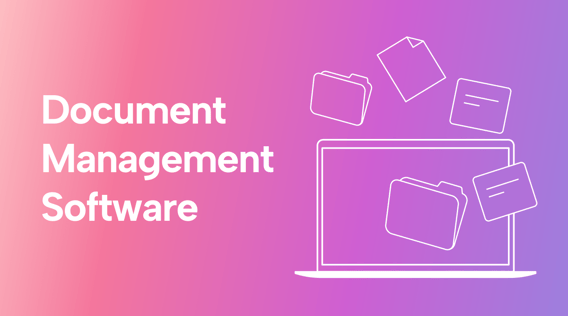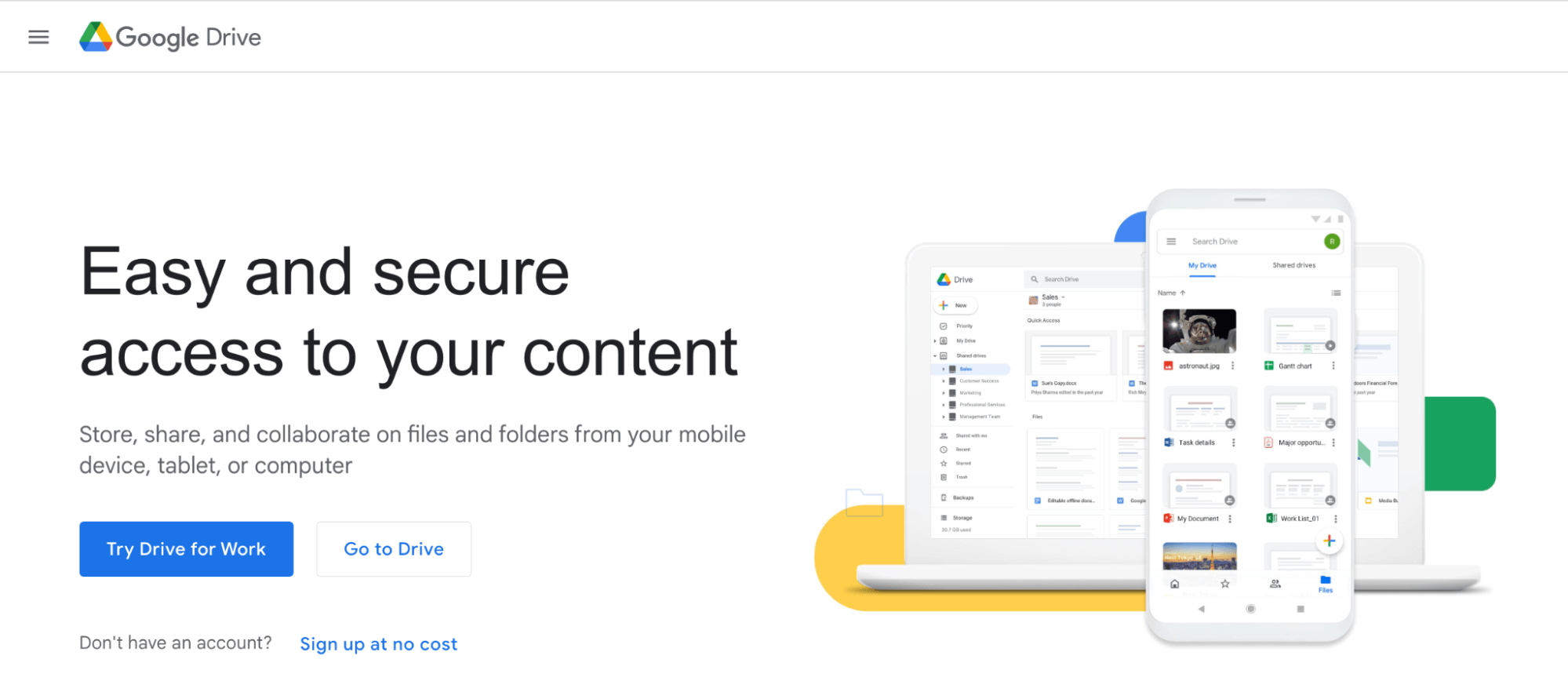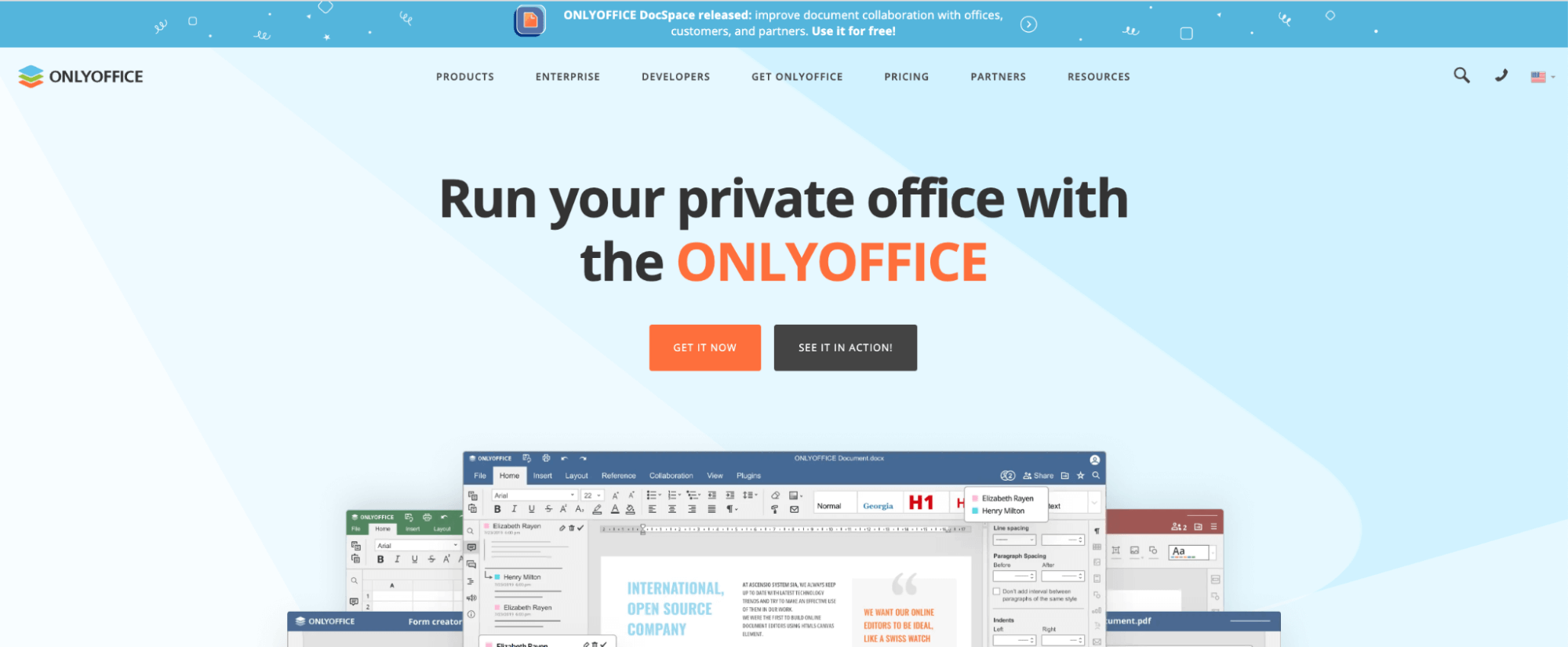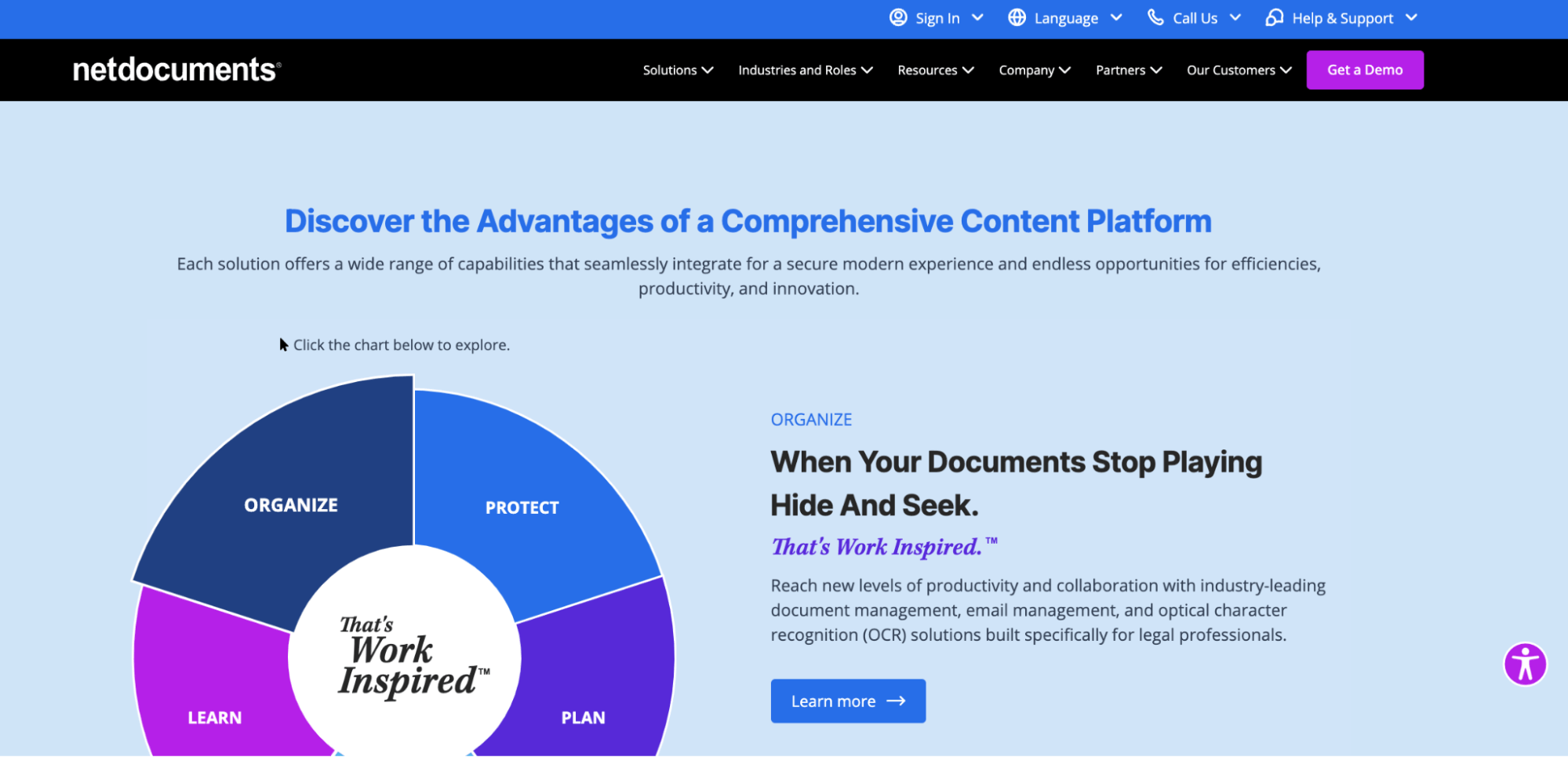Did you know that 33% of office professionals surveyed say they often have issues finding documents? In fact, 60% spend more time searching for documents than they do replying to messages or emails. Take a moment to ponder that wasted time and what you could achieve by putting it to better use. The impact on productivity is, quite plainly, huge.
Disorganized document management systems waste time, impact workflow, cause issues with document security, and lead to the loss of important information.
These issues aren't good for any business, particularly where confidential and crucially important documents are concerned. So what can you do about it?
In this article, we'll discuss document management software, including what it is, its valuable features, and how to choose the best one for your business. Finally, we'll take a closer look at five popular choices.
What is document management software?
Document management software is a digital solution designed to streamline and automate the management of your documents and files. At its most basic level, document management should enable the efficient storage and retrieval of documents whenever they're needed. But with good document management software, we can go much further than that.
The right software not only allows you to safely store documents, but it can include features such as access control, version control, data backup, metadata tagging, search functionality, and document sharing. These features allow quick and efficient document retrieval, enable sharing and collaboration, and increase document security.
Evidently, many business managers understand the importance of document management and are investing accordingly. The global document management system market is projected to grow from $6.23 billion in 2023 to $18.97 billion by 2030 at a CAGR of 17.2%.
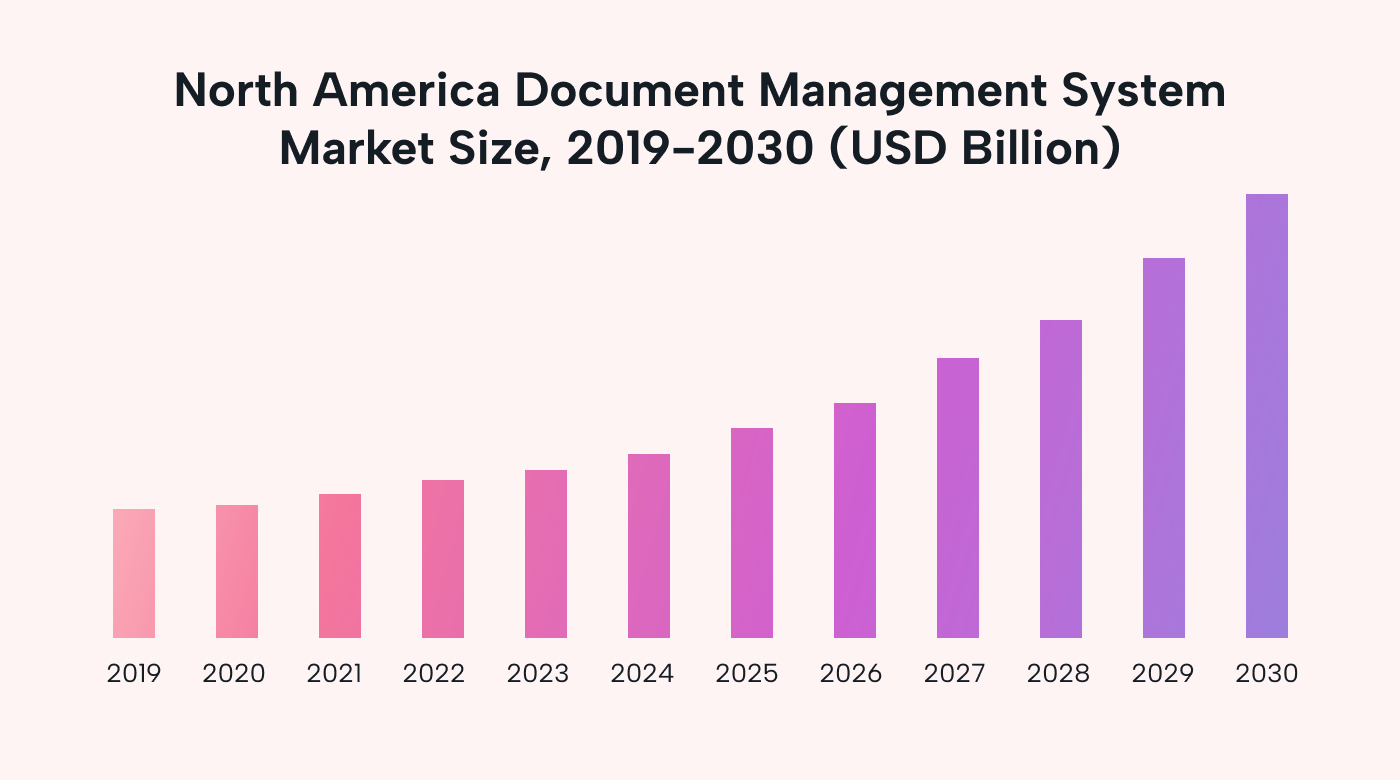 |
Unsurprisingly, those that do have document management software are seeing real benefits. In a survey conducted by Forrester, 61% of respondents stated that the adoption of digital document management tools was an important component of their strategy to embrace digital processes. The senior business decision makers taking part in the study identified several advantages of document management processes, including:
- Fast document retrieval and processing
- Improved collaboration
- Time-saving and improved productivity
- Document sharing while working remotely
- Reduced printing and storage costs
- Enabling document tracking
- Improved data security and compliance
- Access to data analytics and insights
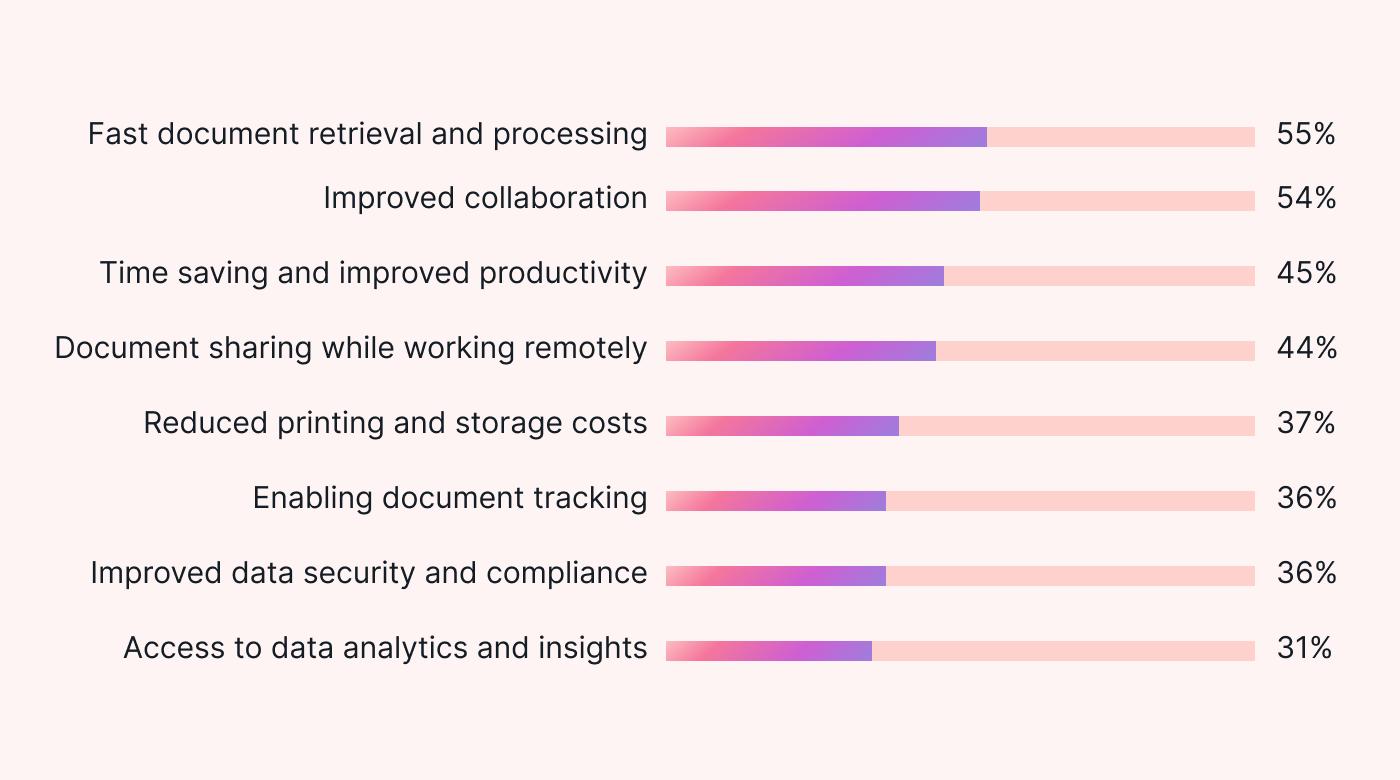 |
So, having established the significant advantages of document management software, let's delve into some of its key features.
Document management software features
Document Sharing and Collaboration: This enables your team to track changes and work together on the same document while maintaining document integrity.
Version Control: Version control allows your team to track, manage, and organize different versions of documents. It preserves a history of changes, which enables you to compare revisions and revert to previous versions if needed.
Image Scanning and Optical Character Recognition (OCR): Image scanning allows you to convert physical documents into digital formats, making them searchable. OCR technology goes a step further by extracting text from scanned images, enabling full-text search functionality.
Electronic Signatures: These enable you to sign documents digitally, doing away with the need for physical signatures. Electronic signatures are both secure and legally binding.
Workflow Automation: Workflow automations automate repetitive tasks, such as document routing, approvals, notifications, and reminders.
Mobile Functionality with Apps for Android and iOS: This will enable your team to access, manage, and collaborate on documents using their smartphones or tablets.
Data Security: Security protocols, encryption techniques, and access controls allow you to safeguard data from potential threats and breaches.
Integration: Integration with your existing software and productivity tools allows data to be shared seamlessly between the different platforms used within your organization.
Customer Service and Support: Good customer support, which provides thorough guidance and resolves issues and questions promptly, will help your team make the best use of your document management software.
How to choose the best document management software
Before choosing your software, it's advisable to define which features you'll need to meet the demands of your business, both now and in the future. Additionally, these are some of the questions and issues that are important to consider when making your choice:
- Do you need cloud-based or on-premises solutions? The most obvious advantage of cloud-based software is that it allows remote access to documents from anywhere with an internet connection. However, you may feel less confident about security with cloud-based software, in which case you might prefer an on-premises solution. Still, there are some cloud-based document management solutions that vouch for extremely high levels of security.
- Are you likely to need to scale up your storage needs? Cloud-based solutions are more flexible in scalability than on-premises solutions, so may be more appropriate if your document management needs are likely to grow.
- Do you prefer automatic updates? The service provider generally handles cloud-based software updates and maintenance automatically.
- Can your prospective software support all the file formats your business uses?
- Can it integrate smoothly with your existing software?
- Do you need enhanced security for sensitive files? Some solutions offer more sophisticated security features than others, so they may be more appropriate for businesses such as law and accounting firms that are dealing with sensitive data.
 |
When you've whittled your choices down based on the various features, look for recommendations and read customer reviews. Find out more about issues such as useability, reliability, and customer support, and get a feel for customer satisfaction in general.
What is the best document management software?
Now that we’ve considered some of the features different software solutions can provide, let’s look at a few examples and consider which sort of businesses they might serve best.
Best for small to medium-sized businesses (SMBs)
Google Drive
Google Drive is one of the most widely known and used document management tools. It provides cloud-based storage, easy sharing and collaboration, document editing, version control, powerful search capabilities, and mobile accessibility through apps for Android and iOS.
Pros
- Generous free storage space. The paid versions offer more storage space at a reasonable price
- Part of a suite of excellent productivity tools
- Automatically synchronizes files between multiple desktop computers.
- Automatically backs up files and saves them to the cloud
- Integrates with other Google Workspace applications and various third-party apps
- Compatible with Windows, macOS, iOS, and Android
Cons
- No password protection for shared files
- As a cloud-based service, some organizations with strict compliance requirements may prefer an on-premises document management solution
Dropbox
Dropbox is another popular choice that offers similar features to Google Drive but with the additional ability to handle very large file sizes. Features include cloud-based file storage, file synchronization across devices, easy sharing and collaboration, file recovery and version history, and integration with various third-party applications.
Pros
- Simple and intuitive user interface
- Built-in e-signature tool
- Can handle large file sizes
- Real-time collaboration that allows multiple users to edit and collaborate on files simultaneously
- File synchronization across devices, ensuring that files are up to date and accessible from anywhere
- Extensive integration with a wide range of third-party applications
- File recovery and version history that allows users to recover previous versions and track changes
- Mobile apps for Android and iOS enable users to access and manage files on the go
Cons
- As a cloud-based system, security may not be considered robust enough for organizations with stringent security requirements
OnlyOffice
OnlyOffice is an integrated platform whose core functionalities are document management and project management. It's available either as a cloud-based tool or installed on on-premises servers. Pricing is determined per user for the cloud-based option or per server for the on-premises option.
Pros
- Document management software is just one feature of OnlyOffice's suite of productivity tools
- Both cloud and on-premises options are available
- The on-premises option provides maximum security for organizations handling sensitive data
- It could be a good choice for businesses that need a more robust solution and more features
- It supports multiple formats such as TXT, CSV, HTML, DOC, DOCX, and PDF
Cons
- No mobile apps
Best document management software for law firms
NetDocuments
NetDocuments is a cloud-based document management software that is specifically designed for law firms. It's also suitable for higher education, medicine and health, professional sports, accountants, business leaders, or organizations that require a high level of data security.
Pros
- Although NetDocuments is cloud-based, it provides high levels of security
- It has advanced security features such as multi-factor authentication and encryption
- There's a built-in e-signature tool
- Advanced search capabilities make documents easy to retrieve
- Documents can be accessed from anywhere, including on mobile devices
- NetDocuments Integrates with 150+ apps
Cons
- Custom pricing leads to a lack of transparency in predicting costs
Best document management software for accountants
Revver (formerly eFileCabinet)
Revver is suitable for small businesses to large corporations across a wide range of industries, including accounting firms, financial services, government, healthcare, logistics, and property management. It's a cloud-based system providing some highly advanced features such as automation workflows and zonal optical character recognition.
Pros
- It has an intuitive and user-friendly interface
- Revver enables the creation of no-code automation workflows to streamline your business process
- Zonal optical character recognition (OCR) can be used for the accurate extraction of data from scanned paper documents
- A huge storage capacity of 20TB
- Advanced search capabilities make it quicker and easier to find documents
- Uneditable audit trails provide a tamper-proof record of any changes to documents
- High levels of cybersecurity make it a good choice for organizations storing sensitive data
Cons
- No mobile app
- Lengthy set-up times and high costs mean it might not be the best choice for very small businesses
Make document management easier
So we've seen that document management software can, at the very least, solve problems with the quick retrieval of documents when they're needed. This in itself has the potential to save time and optimize workflows. But good document management software can offer a lot more than that, such as increased data security, easier collaboration, and the ability to audit data more efficiently.
Many of these solutions offer integration with your existing apps too. For instance, Google Drive and Dropbox integrate seamlessly with Motion via its compatibility with Zapier.
To try this out for yourself, along with Motion's many other advanced features, sign up for our free 7-day trial.

